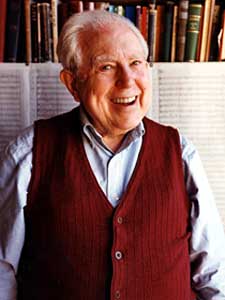A Quote by Henry Giroux
Many university presidents assume the language and behavior of CEOs and in doing so they are completely reneging on the public mission of the universities. The state is radically defunding public universities and university presidents, for the most part, rather than defending higher education as a public good, are trying to privatize their institutions in order to remove them from the political control of state governments. This is not a worthy or productive strategy.
Quote Topics
Assume
Behavior
CEOs
Control
Defending
Doing
Education
Good
Governments
Higher
Higher Education
Institutions
Language
Many
Mission
Most
Order
Part
Political
Presidents
Productive
Public
Public Good
Radically
Rather
Remove
State
State Government
State Governments
Strategy
Than
Them
Trying
Universities
University
Worthy
Related Quotes
The demise of higher education as a public good is also evident in light of the election of a number of right-wing politicians who are cutting funds for state universities and doing everything they can to turn them in training centers to fill the needs of corporations. This new and intense attack on both the social state and higher education completely undermines the public nature of what education is all about.
University presidents should be loud and forceful in defending the university as a social good, essential to the democratic culture and economy of a nation. They should be criticizing the prioritizing of funds for military and prison expenditures over funds for higher education. And this argument should be made as a defense of education, as a crucial public good, and it should be taken seriously. But they aren't making these arguments.
If the government were to invest that money in higher education and public services, these would be far better investments. But administrators and academics in the U.S. for the most part don't make these arguments; instead they have retreated from defending the university as a citadel of public values and in doing so have abdicated any sense of social responsibility to the idea of the university as a site of inspired by the search for truth, justice, freedom, and dignity.
Many faculty retreated into academic specializations and an arcane language that made them irrelevant to the task of defending the university as a public good, except for in some cases a very small audience. This has become more and more clear in the last few years as academics have become so insular, often unwilling or unable to defend the university as a public good, in spite of the widespread attacks on academic freedom, the role of the university as a democratic public sphere, and the increasing reduction of knowledge to a saleable commodity, and students to customers.
The whole student loan thing drives me completely nuts. If it wasn't possible for 18-year-olds to sign themselves up for tens of thousands of dollars in debt in order to pay their college bills, the state governments wouldn't have found it so politically easy to cut taxpayer support for public colleges and universities.
Control of thought is more important for governments that are free and popular than for despotic and military states. The logic is straightforward: a despotic state can control its domestic enemies by force, but as the state loses this weapon, other devices are required to prevent the ignorant masses from interfering with public affairs, which are none of their business… the public are to be observers, not participants, consumers of ideology as well as products.
We are moving in exactly the wrong direction in higher education. Forty years ago, tuition in some of the great American public universities and colleges was virtually free. Today, the cost is unaffordable for many working class families. Higher education must be a right for all - not just wealthy families.
I grew up in Orangeburg, South Carolina, which has the proud distinction of being the home to two of the eight Historically Black Colleges and Universities in the state: South Carolina State University and Claflin University. When I was a kid riding around town with my grandfather, we often drove by the colleges.






























